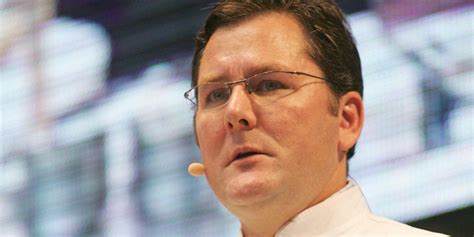A Quote by Bennett Miller
Kenny Lonergan, as a filmmaker, doesn't tell stories so much as he observes them, which is to say, his films don't come pre-digested. You have to bring your own enzymes. It's a more gripping and challenging experience.
Related Quotes
For me, language is a freedom. As soon as you have found the words with which to express something, you are no longer incoherent, you are no longer trapped by your own emotions, by your own experiences; you can describe them, you can tell them, you can bring them out of yourself and give them to somebody else. That is an enormously liberating experience.
Stories? We all spend our lives telling them, about this, about that, about people … But some? Some stories are so good we wish they’d never end. They’re so gripping that we’ll go without sleep just to see a little bit more. Some stories bring us laughter and sometimes they bring us tears … but isn’t that what a great story does? Makes you feel? Stories that are so powerful … they really are with us forever.
Each of us is comprised of stories, stories not only about ourselves but stories about ancestors we never knew and people we've never met. We have stories we love to tell and stories we have never told anyone. The extent to which others know us is determined by the stories we choose to share. We extend a deep trust to someone when we say, "I'm going to tell you something I've never told anyone." Sharing stories creates trust because through stories we come to a recognition of how much we have in common.
Why do we tell stories? It's because we want to connect to people, we want to tell them who we are, we want to tell them a story that affects us, that impacts us. And to help a young filmmaker doing a short or independent film is my testament, I think, is my desire to really make sure that our younger generations get passed along all the elders' experience and to literally have the image - to literally carry them on their shoulders and say, 'This is what the world is. This is how the world operates. Let me show you how.'
During the last decades, films about the black experience have been produced, directed, and even scripted by white men. Some of them are excellent. But most reflect George Bernard Shaw’s warning that 'if you do not tell your stories others will tell them for you and they will vulgarize and degrade you.'
I have a theory that the best ads come from personal experience. Some of the good ones I have done have really come out of the real experience of my life, and somehow this has come over as true and valid and persuasive. People love to read stories. They like to know you as a real person who has your struggle, pain, success and failure, etc. One well-known example is Jared Fogle's weight loss story which made millions of dollars for Subway. Start to collect your stories from today and use them in your ad campaigns.
AS SOMBRAS DA ALMA. THE SHADOWS OF THE SOUL. The stories others tell about you and the stories you tell about yourself: which come closer to the truth? Is it so clear that they are your own? Is one an authority on oneself? But that isn't the question that concerns me. The real question is: In such stories, is there really a difference between true and false? In stories about the outside, surely. But when we set out to understand someone on the inside? Is that a trip that ever comes to an end? Is the soul a place of facts? Or are the alleged facts only the deceptive shadows of our stories?
By the end of the book, it is quite different than the way you thought it would be when you started the book - both in form and what it contains and what you think. Well, you tipped in a lot and you digested a lot - it wasn't pre-digested in your view. And it changed what you thought and how you see things.






































